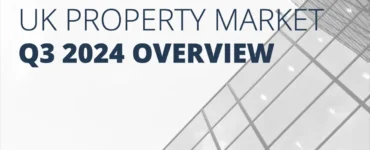
As the world entered the first quarter of a century of the new millennium, the clocks chimed an important transition. The average Baby Boomer – the generation born between 1946 and 1964 – will turn 70 years old this year, and the oldest of their cohort will reach their late 70s. This heralds a huge intergenerational transfer of asset from older generation to their offsprings. Some dubbed this ‘the Great Wealth Transfer’. Economists estimate that between $70-100trn would be passed on from baby boomers to millennials (b. 1981-1996) and Generation-Z (b. 1997-2012) during the transition.
Many boomers invested their wealth in stocks and housing and have benefitted from rising asset valuations over the last decades. A significant amount of this inherited wealth would not be taxed – if handled efficiently. This means, the wealth effect would turn up in the spending of the younger generation ‘tax-free’. This windfall will have significant implications on the future generations and the society as a whole. How?
Analysis of longitudinal studies by the Financial Times revealed a striking disparity in wealth among millennials. On average, US millennials had 30% less wealth than baby boomers did at age 35. However, the wealthiest 10% of millennials are now approximately 20% richer than boomers were at the same age. FT journalists found a similar pattern in the UK where a median millennial still has net zero housing wealth compared to an equivalent boomer, who by this point in life enjoyed more than a few years of building equity in their first home. Yet, the top-ten percent of thirtysomethings had £300,000 of net housing wealth, revealing a huge gap between the top and the median not seen in the previous generations.(1)
And therein lies a not so big secret. The more fortunate millennials receive money from the Bank of Mum and Dad in order to get on the property ladder, – this figure is about a third of all first-time buyers in both the UK and the US. According to the FT, there is a huge variability in financial assistance from parents in the UK. Many receive nothing, some receive an average, which is about £25,000, yet the top-ten receive up to £170,000.
The journalists add that these gifts compound over time. Investing £170,000 into deposit for the property would result in almost doubling of the gift value over the life of a mortgage, due to lower loan-to-value ratios and lower interest repayments. This is truly incredible and it changes financial and life outcomes for those lucky enough to be in the top percentiles of gift receivers.
The Millennials, who have come of age during the Great Financial Crisis, have often been ambivalent about the social contract on offer. Compared to the previous generations, and the Gen-Zs, they struggled for work and had to live throughout a period of austerity, unemployment and rapidly shifting socio-economic changes: hollowing of ‘middle- class-for-life jobs’, advent of algorithmic jobs controlled by platforms such as Uber and Airbnb. Perhaps what they least expected was the creeping inequality within its own ranks, as some of their richer peers have steamed ahead, thanks, in part to their family wealth. The Great Wealth transfer will definitely make the millennials richer, but even more so, it will further exacerbate the divide between the richest and the poorest. These divergent outcomes will have consequences for politics on the fringes, something that we may have to all pay for.
(1) Financial Times. (assessed 6- January 2025). Forget boomers vs millennials, the next conflict is millennials vs each other. Retrieved from https://www.ft.com/content/46d8bd13-1be1-4c59-8be7-d30f9d756d92


